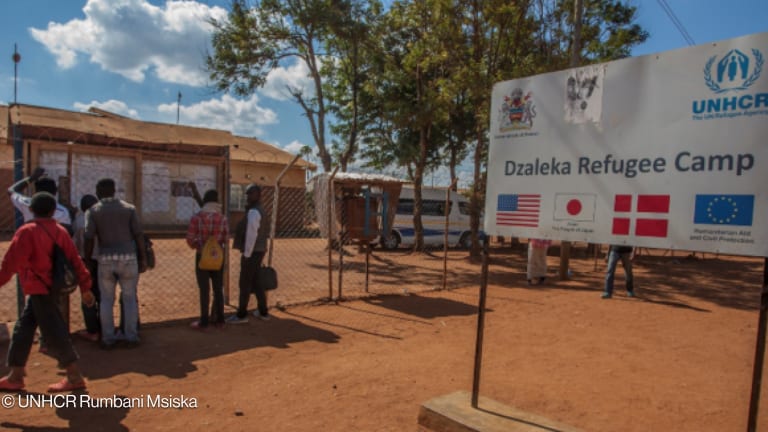
Jobs are being lost. The restrictions on movement that are keeping people safe from the coronavirus are often damaging or destroying their livelihoods and their ability to feed and care for their families. Around the world, the most vulnerable people are facing a stark and possibly deadly choice: Do they risk contracting COVID-19, or risk not feeding their families?
As humanitarians, how can we help prevent families from having to make this impossible choice?
Cash transfers lead the social assistance response to COVID-19
Cash transfers are the most widely used social assistance responses from governments during this crisis. But the uptake has been slow in low-income countries.
In Turkey, the International Federation of Red Cross and Red Crescent Societies, or IFRC, and the Turkish Red Crescent surveyed some 500 Syrian refugees being supported by our programs. We found that 69% have lost their jobs, their expenses have skyrocketed, and their biggest concern is how they will feed themselves and their families. More than half of these households are borrowing money to cover their most basic needs — including food.
Right now, vulnerable communities across the world need extra support quickly, safely, and reliably. Due to the scale of this crisis, there is a very diverse range of groups and individuals being badly affected, and their needs are equally diverse. We must be able to provide flexible support that can adapt to these different needs.
Delivering cash to the people in most need and in close coordination with national social protection systems is the most appropriate way to respond to the socioeconomic impact of COVID-19 around the world.
We all know and talk about the benefits of cash, especially now in these difficult times. Yet the latest estimates suggest that less than 20% of humanitarian relief is currently delivered through cash programming.
The immense impact of COVID-19 is a wake-up call for us to change this. There is no better time to tap into the power of cash as a critical link between economies and households, and it can become a lifeline for millions of people globally.
The current pandemic has shown us that without health, there is no economy. It also shows us that without access to financial support, it is harder for people to reduce health risks or recover their health once lost.
Giving cash gives people the choice of prioritizing their own needs and contributing to their communities.
—Giving cash to people facing crisis helps address a wide range of needs — from rent, food, and education to hygiene items that help prevent diseases from spreading or encourage access to health care. It allows them to prepare, prioritize, and take care of their families, based on their own preferences and decisions. By alleviating the stresses on families struggling to meet their basic needs, we can help them avoid negative coping mechanisms that could put them at further risk of COVID-19.
Cash programming allows us to respond rapidly and at scale while still protecting the people we serve, our staff, and our volunteers in communities around the world. Through the European Union-funded Emergency Social Safety Net program, Turkish Red Crescent and IFRC are providing monthly cash assistance to more than 1.7 million refugees. Transferring funds through this existing infrastructure can allow us to rapidly respond and adapt to current needs and provide additional assistance when needed at a massive scale.
In the Africa region, IFRC is supporting at least 20 National Red Cross and Red Crescent Societies to deliver cash through popular mechanisms such as mobile money to provide immediate support to families. The cash will help people invest in and strengthen local economies — a key to their road to recovery — as well as jump-start livelihoods when the restriction on movement allows.
For cash programming to work effectively and be accountable to the people our sector serves, we must be embedded at the community level. More than ever before, the challenges faced by international organizations in deploying on the ground during the COVID-19 pandemic highlight the need for an ever-increasing localized approach. Because of their everyday work, volunteers know — with or without immediate physical access to communities — which people are most vulnerable, most at risk of falling through the gaps of existing social safety nets.
Despite the current sense of urgency, the humanitarian sector should resist the temptation to replace or duplicate national governments’ social protection systems but rather collectively invest in existing systems and help to reinforce them. We must advocate to make social protection systems more flexible, relevant, and inclusive.
Ever since the World Humanitarian Summit in 2016, the importance of localization and of scaling up the use of cash, the need for change, and the necessity of innovation have been at the top of the humanitarian sector’s agenda.
Nothing about the way humanitarians are working and operating during this pandemic is business as usual. We are having to reinvent the way we respond in this crisis and set aside the traditional modes and methods of support.
More than ever, we need to work with affected populations and acknowledge that they are best placed to lead their own path toward a new normal. Giving cash gives people the choice of prioritizing their own needs and contributing to their communities.
With all these advantages available through cash programming, it is time for humanitarians to take cash to the next level.
Visit our dedicated COVID-19 page for news, job opportunities, and funding insights.









